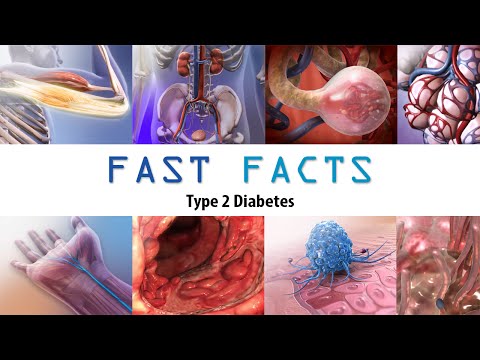The intricate relationship between mental and physical health is the cornerstone of today’s healthcare assessments. If you have a problem with one, you are more likely to have issues with the other. To provide holistic care, healthcare professionals must understand the dynamic interplay between the two dimensions.
The Role Of Nurses In Complete Care Planning
Today, we look at the importance of physical and mental health in healthcare assessments. Read on to discover how and why nurses are pivotal in integrating these aspects into care planning for optimal patient outcomes.
The bidirectional impact of mental and physical health
The relationship between mental and physical health plays a huge role in an individual’s general wellbeing. Chronic physical illnesses, ranging from autoimmune disorders to cardiovascular conditions, often place a substantial emotional burden on a person. For starters, coping with uncertainties about the future and lifestyle adjustments can lead to heightened depression, anxiety and stress.
Mental health conditions often manifest in different physical symptoms as well, blurring the line between physical and mental health. For instance, persistent stress may lead to a compromised immune system, elevated blood pressure and gastrointestinal issues.
This bidirectional relationship emphasizes the importance of a more holistic approach to healthcare assessments. Practitioners must consider the symptoms of a particular ailment and its potential effects on mental well-being and vice versa.
Recognizing these interconnected threads requires health practitioners to adopt a more comprehensive perspective. One of the RN to MSN programs offered at reputable institutions such as Wilkes University is an excellent start for registered nurses who want to earn their MSN degree.
Students gain skills in providing holistic care that recognizes the connection between physical and mental health, advanced clinical skills, and evidence-based practice for improved patient outcomes. With 100% online coursework and on-site clinical placements, students can choose from three concentrations: family nurse practitioner, adult-gerontology primary care, and psychiatric/mental health.
The holistic approach to healthcare assessments
As stated earlier, comprehensive healthcare assessments should embrace a holistic approach that transcends addressing isolated symptoms. It is a methodology that acknowledges that an individual’s health is related to both their mental and physical health. Nurses, being crucial players in patient care, play a pivotal role in employing this holistic lens.
By incorporating physical and mental health indicators into healthcare assessments, nurses better understand a patient’s health status. For instance, an individual’s chronic pain may not be a physical concern but may contribute to certain mental health challenges, such as depression or anxiety. Knowing how the two are interconnected enables nurses to create care plans that address the root cause of the issue, which ensures patients receive more effective and patient-centered interventions.
The holistic approach in healthcare assessments recognizes that health is a comprehensive experience. It considers mental and physical dimensions when handling the needs of patients. Nurses use this approach to significantly increase the efficacy and quality of patient care within the healthcare sector.
How nurses contribute towards holistic care planning
Being frontline healthcare providers, nurses take on a multifaceted role in holistic care planning. They need to consider the connection between physical and mental health to enhance patient outcomes. Here is a deeper look at the specific roles of nurses in holistic care planning:
Advocacy and support
To begin with, nurses act as champions for patients within the healthcare industry. They ensure the voices of their patients are heard and their concerns — both mental and physical — are acknowledged. This advocacy extends to addressing any potential gaps in care plans by collaborating with other healthcare professionals to provide a comprehensive support system. It is a patient-centric approach that contributes to the overall quality of care in healthcare facilities.
Early identification and intervention
Incorporating mental health assessments into routine care procedures allows nurses to actively contribute towards early identification of mental health challenges. This early recognition initiates timely interventions, which helps prevent the escalation of issues. It is a critical role that emphasizes the importance of a more holistic approach to managing and preventing mental and physical health issues.
Education and empowerment
Nurses act as educators in today’s healthcare system, empowering patients to actively participate in their health journey. They play a critical role in illustrating the interconnected nature of mental and physical wellbeing. For starters, they provide the information and support that patients need to empower them in recognizing the importance of addressing mental health alongside physical health. It is an educational approach to healthcare that fosters a sense of partnership in the patient-nurse relationship.
Collaborative care
Holistic care planning is only possible when there is seamless collaboration between various healthcare disciplines. Nurses act as a bridge between mental and physical health specialists, ensuring an integrated and cohesive approach to patient care. It is a critical collaboration that enables a more comprehensive understanding of a patient’s health status, leading to well-informed healthcare plans.
Identifying Mental Health Indicators in physical health assessment
Nurses must understand the relationship between mental and physical health to effectively integrate mental health into care planning. This includes more than just relying on standardized screening tools in healthcare facilities. They need to keenly observe both verbal and non-verbal cues during routine physical assessments.
Verbal cues
Nurses actively listen to patients when providing care. They pay close attention to verbal cues, which offer valuable insights into a patient’s mental well-being. Changes in sleep patterns, expressions of persistent change and descriptions of stress may serve as indicators that prompt further exploration of the patient’s mental health. Nurses will encourage patients to share their experiences by creating an open and trusting communication environment.
Non-verbal cues
Apart from words, non-verbal cues offer a wealth of information to nurses. Changes in facial expression, body language and signs of emotional distress often signal underlying mental health challenges. Nurses are trained to identify these subtle cues and initiate conversations with mental health professionals to address any existing mental health issues. This helps ensure a more comprehensive evaluation which leads to a favorable care plan that suits the patient’s needs.
Standardized tools
Apart from relying on their clinical judgment, nurses also leverage standardized screening tools to assess mental health aspects during physical health examinations. These tools provide a structured approach that helps health practitioners identify potential mental health concerns early on. From anxiety and depression screenings to psychological assessments, these standardized tools enhance the depth of a nurse’s evaluation.
Challenges in holistic care
It is paramount for health practitioners to integrate physical and mental health when providing holistic care. However, there are several challenges and considerations that they must navigate to achieve optimal patient outcomes. Here is an in-depth look at the considerations and challenges in providing holistic care:
Stigma surrounding mental health
One of the greatest challenges in providing holistic care is the persistent stigma associated with mental health. Several societal misconceptions hinder open conversations about one’s mental wellbeing. This makes it difficult for nurses to adequately address any underlying mental health concerns and provide comprehensive care.
Limited resources
Resource constraints in terms of specialized mental health services pose significant challenges. Nurses regularly manage heavy workloads, which makes it difficult to efficiently allocate sufficient resources to comprehensive mental health assessments. Additionally, limited access to mental health professionals may also hinder collaborative care efforts.
Time constraints
Today’s healthcare environment is rather fast-paced, and nurses are expected to integrate mental health considerations into their already tight schedules. This makes it difficult to conduct comprehensive healthcare assessments for every patient.
Strategies nurses employ in overcoming challenges
Addressing challenges in holistic care is crucial for creating an environment where mental and physical health are prioritized equally. As healthcare systems evolve, nurses have to find innovative ways to overcome these obstacles to foster a healthcare system with a truly holistic approach to patient care. Here is a quick look at some of the strategies nurses use to overcome these challenges:
Education and training programs
Education acts as the foundation for transforming perspectives on mental health. Through enhanced education and training programs, nurses can enhance their skills in recognizing and addressing mental health issues. These programs leverage case studies, real-world scenarios, and simulations to equip nurses with the expertise and empathy needed to navigate the increasingly complex field of mental health.
Collaboration
Effective communication in the healthcare industry requires more than just communication. It also demands a shared understanding of each discipline’s strengths and contributions. Nurses have the responsibility to foster a culture where all healthcare providers can engage in joint case reviews, regular discussions and collaborative decision-making. By establishing clear communication channels, they can enhance the flow of information, supporting a holistic approach to patient care.
Streamlined assessment protocols
There must be a balance between thoroughness and efficiency to achieve streamlined assessment protocols. Nurses benefit from practical tools that seamlessly integrate mental health considerations into existing protocols. This includes the implementation of user-friendly checklists and decision trees that prompt nurses to routinely include mental health assessments. Incorporating feedback from nurses on the frontline of healthcare in the refinement of these tools ensures they remain relevant and practical in real-world healthcare settings.
Destigmatizing conversations
Destigmatization goes beyond the traditional clinical setting and extends to the broader healthcare culture. Educational campaigns in the community can help challenge stereotypes and foster a more compassionate understanding of mental health. Being advocates, nurses actively participate in these initiatives by sharing their insights and experiences to humanize mental health discussions. This helps create safe spaces where people can engage in open dialogue, working to break down barriers and encourage patients to share their mental health concerns without fear of judgment.
The future of holistic healthcare integration
Healthcare systems are continuously evolving, which opens the door to further integrating mental and physical health in patient care. Below is a look at the emerging trends and potential advancements shaping the landscape of holistic healthcare integration:
Technological innovations
Recent advancements in technology, including digital health and telehealth applications, present new avenues for holistic patient care. Remote monitoring tools provide a platform where healthcare practitioners can effectively extract valuable data concerning mental and physical health. This allows nurses to conduct more comprehensive assessments, especially with artificial intelligence (AI) integration that helps with the early identification of patterns that are indicative of mental health concerns.
Expanded mental health services
Expansion of mental health services may help address resource limitations within healthcare systems. This could include specialized training for nurses, increased access to mental health professionals and the inclusion of mental health expertise in interdisciplinary care teams. Through these developments, healthcare professionals can effectively deliver holistic care on a broader scale.
Patient-centric approaches
Patient-centric models that prioritize individualized care plans are the future of healthcare. Tailoring interventions based on a patient’s particular needs ensures a more effective and personalized approach to healthcare. Nurses play a crucial role in facilitating these patient-centric models by embracing patient empowerment within healthcare facilities.
Research and evidence-based practices
Ongoing research into the intricate relationship between mental and physical health helps contribute to the development of evidence-based practices. This research continuously informs healthcare protocols, ensuring a more holistic approach to patient care that is rooted in scientific understanding. As the knowledge base expands, nurses gain access to increasingly complex strategies and tools to integrate mental health considerations into their practice.
Conclusion
The symbiotic relationship between mental and physical health is more than just a theoretical concept. It also acts as a guiding principle for nurses in their daily practice. As we move towards a future where holistic care becomes the standard, nurses stand at the frontline providing comprehensive care. They pave the way for a healthcare landscape that considers the whole person.












Pingback: 4 Ways To Make Your Nursing Job More Exciting 2025